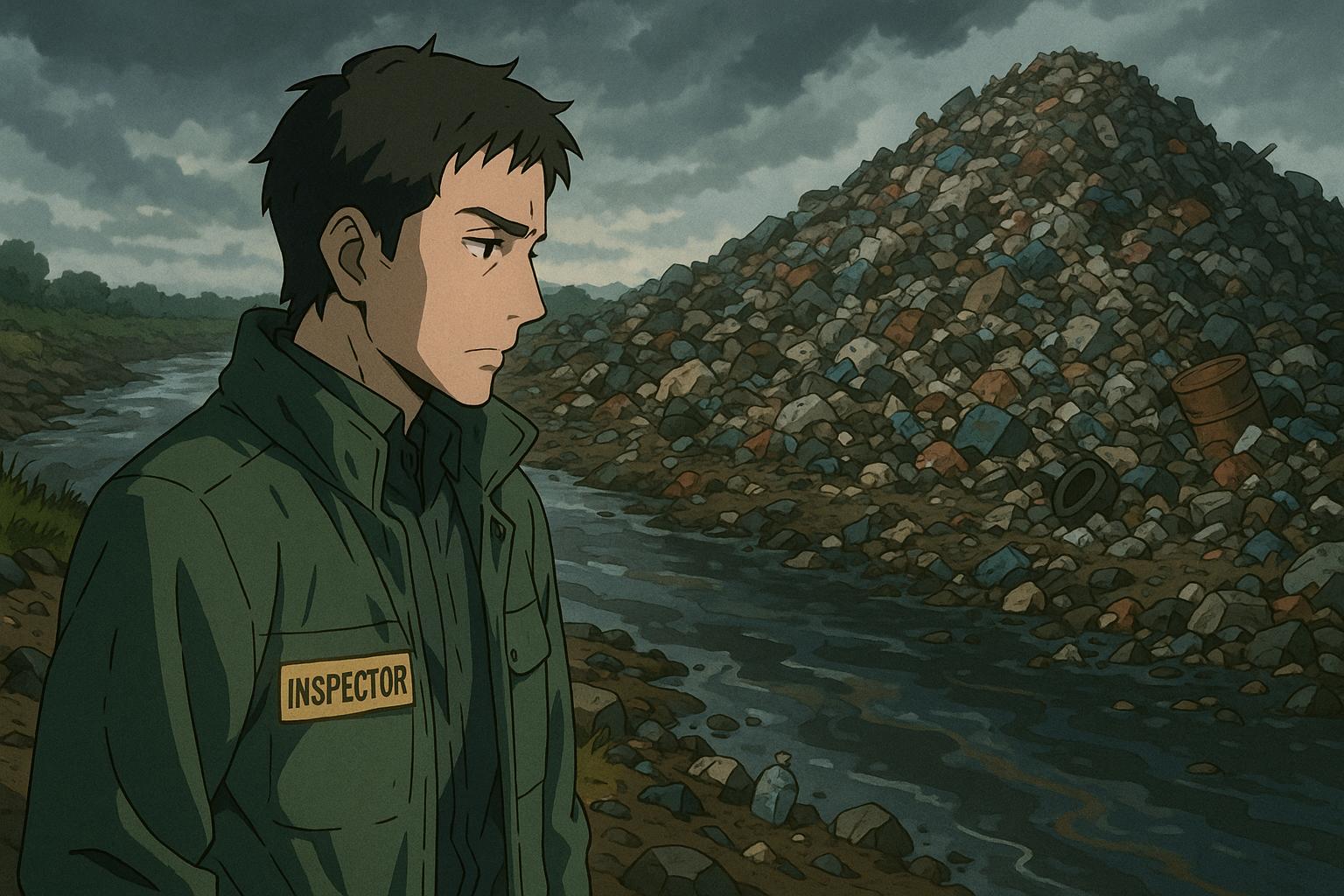A Northern Ireland company has been officially wound up by court order, following its involvement in one of Europe’s largest illegal dumps, the Mobuoy site near Londonderry. This operation, described as "one of the biggest environmental disasters in UK history," has drawn significant public concern and triggered ongoing regulatory scrutiny.
Located adjacent to the River Faughan, which serves as a primary drinking water source for Derry, the Mobuoy site witnessed the illegal deposition of over a million tonnes of waste before its closure in 2013. The Northern Ireland Environment Agency (NIEA) has spent more than £4 million managing the environmental risks stemming from the site, which remains contaminated and poses ongoing threats to public health. Despite various assessments, authorities have yet to determine effective strategies for remediation, a process that could potentially cost tens of millions of pounds and take years to complete.
Security around the Mobuoy site has become a growing concern, especially following reports of tampering with gates and unauthorised access. Local councils have called for a thorough review of security measures, highlighting the NIEA's limitations in implementing additional protections like CCTV, as it does not own the site. This inadequacy has led to inspections being conducted weekly, with tests of the neighbouring river ensuring that drinking water safety is maintained.
The legal ramifications of the environmental devastation caused by the illegal dumping have been protracted, with the sentencing of two men responsible for operating the Mobuoy dump having been delayed multiple times. They pleaded guilty three years ago to overseeing the dumping of approximately 1.6 million tonnes of waste, yet the case remains unresolved amidst a backdrop of legal aid disputes and procedural setbacks.
Recent estimates have significantly raised the potential clean-up costs—initially pegged at £107 million—suggesting figures could spiral to as high as £700 million. Environment Minister Andrew Muir remarked that consultants are rigorously evaluating these costs to develop a business case for remediation, particularly as the contaminated site stands in the way of important infrastructure projects, such as the A6 road upgrade.
The Mobuoy incident has also raised wider implications about the integrity of the waste management sector in Northern Ireland. A comprehensive review commissioned by the NIEA revealed rampant criminality within the industry, with links to organised crime and significant deficiencies in the regulatory framework that governs waste transportation. This illuminates a fragmented system unable to provide effective oversight, allowing environmental crimes like those at Mobuoy to proliferate.
As the legal proceedings continue and the community grapples with the ramifications of the dump, calls for enhanced regulatory measures and a commitment to pursuing accountability remain paramount. The Mobuoy case has not only damaged the local environment; it has also sparked a broader conversation about responsibility within the waste industry, and the urgent need for reform to prevent future environmental catastrophes.
Reference Map
- Paragraph 1: [1]
- Paragraph 2: [2]
- Paragraph 3: [3]
- Paragraph 4: [4]
- Paragraph 5: [5]
- Paragraph 6: [6]
- Paragraph 7: [7]
Source: Noah Wire Services
